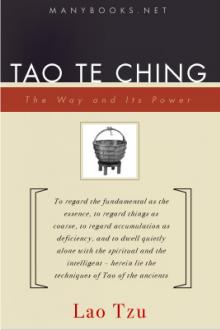Genre Religion. Page - 13
All entire books of the Religion genre on your device.

r guided by the example of Christ in the treatment of enemies; therefore they cannot be agreeable to the will of God, and therefore their overthrow by a spiritual regeneration of their subjects is inevitable."We regard as unchristian and unlawful not only all wars, whether offensive or defensive, but all preparations for war; every naval ship, every arsenal, every fortification, we regard as unchristian and unlawful; the existence of any kind of standing army, all military chieftains, all

to one of them publicly was already sufficient to set him off as one in imminent need of psychiatrical attention. Belief in them had become a mark of inferiority, like the allied belief in madstones, magic and apparitions.But though the theology of Christianity had thus sunk to the lowly estate of a mere delusion of the rabble, propagated on that level by the ancient caste of sacerdotal parasites, the ethics of Christianity continued to enjoy the utmost acceptance, and perhaps even more

, day by day, so Christ is able in heaven now to do what He could not do when He was on earth--to keep in the closest fellowship with every believer throughout the whole world. Glory be to God! You know that text in Ephesians: "He that descended is the same also that ascended, that He might fill all things." Why was my Lord Jesus taken up to heaven away from the life of earth? Because the life of earth is a life confined to localities, but the life in heaven is a life in which there

ly little bows and little arrows that looked like children's playthings, but upon these tiny arrows there was a small drop of poison which would kill an elephant or a man as quickly and as surely as a Winchester rifle. Their defense was by means of poison and traps. They would steal through the darkness of the forest and, waiting in ambush, let fly their deadly arrows before they could be discovered. They dug ditches and carefully covered them over with leaves. They fixed spikes in the ground

blacken his name and secure his removal, instigated a suit against him for having mismanaged an inheritance left to his children by his first wife. The children themselves appeared in his defence, however, and expressed their complete satisfaction with his administration of their property; and the trumped up charge was wholly disproved. But his enemies still wanted to have him removed and, choosing a new method of attack, forwarded a petition to the king in which they claimed that "Master

as to the Tao have the happiness of attaining to it; those with whom he agrees as to its manifestation have the happiness of attaining to it; and those with whom he agrees in their failure have also the happiness of attaining (to the Tao). (But) when there is not faith sufficient (on his part), a want of faith (in him) ensues (on the part of the others).24. He who stands on his tiptoes does not stand firm; he who stretches his legs does not walk (easily). (So), he who displays himself does not

s: 5:24 And Enoch walked with God: and he was not; for God took him.5:25 And Methuselah lived an hundred eighty and seven years, and begat Lamech. 5:26 And Methuselah lived after he begat Lamech seven hundred eighty and two years, and begat sons and daughters: 5:27 And all the days of Methuselah were nine hundred sixty and nine years: and he died. 5:28 And Lamech lived an hundred eighty and two years, and begat a son: 5:29 And he called his name Noah, saying, This same shall comfort us

ldManse. And now--because, beyond my deserts, I was happy enoughto find a listener or two on the former occasion--I again seizethe public by the button, and talk of my three years' experiencein a Custom-House. The example of the famous "P. P. Clerk ofthis Parish," was never more faithfully followed. The truthseems to be, however, that when he casts his leaves forth uponthe wind, the author addresses, not the many who will fling asidehis volume, or never take it up, but the few who

fe and children,perceiving it, began to cry after him to return; but the man puthis fingers in his ears, and ran on, crying, Life! life! eternallife! [Luke 14:26] So he looked not behind him, but fled towardsthe middle of the plain. [Gen. 19:17]{19} The neighbours also came out to see him run [Jer. 20:10];and, as he ran, some mocked, others threatened, and some criedafter him to return; and, among those that did so, there were twothat resolved to fetch him back by force. The name of the one

to continue more or less during the rest of Marcus's reign. During these wars, in 169, Verus died. We have no means of following the campaigns in detail; but thus much is certain, that in the end the Romans succeeded in crushing the barbarian tribes, and effecting a settlement which made the empire more secure. Marcus was himself comanander-in-chief, and victory was due no less to his own ability than to his wisdom in choice of lieutenants, shown conspicuously in the case of Pertinax. There